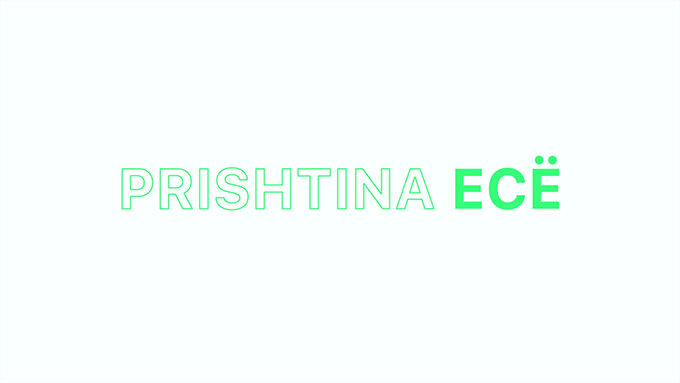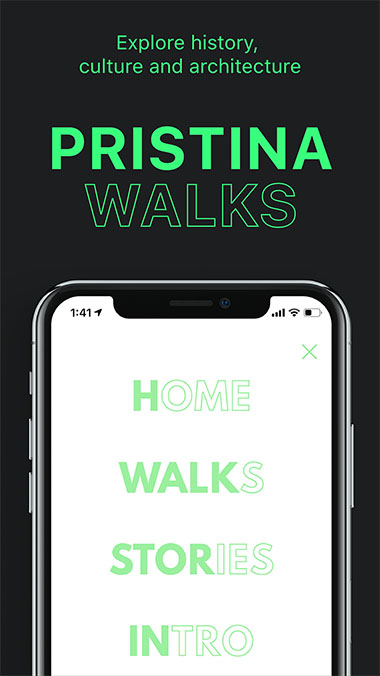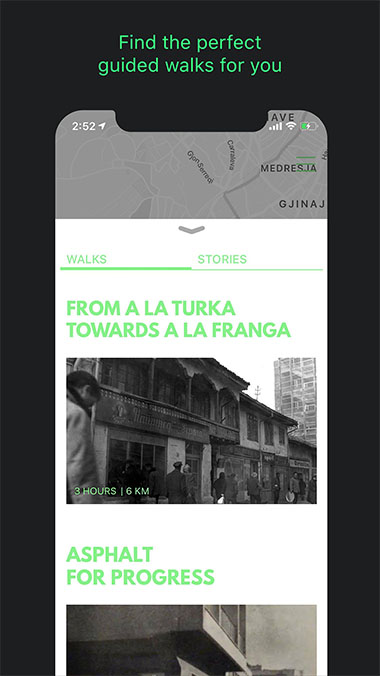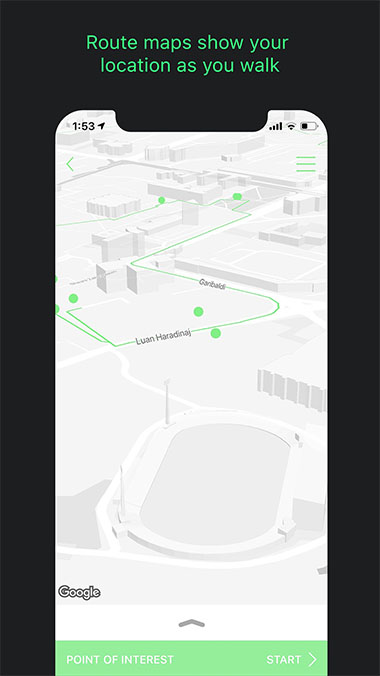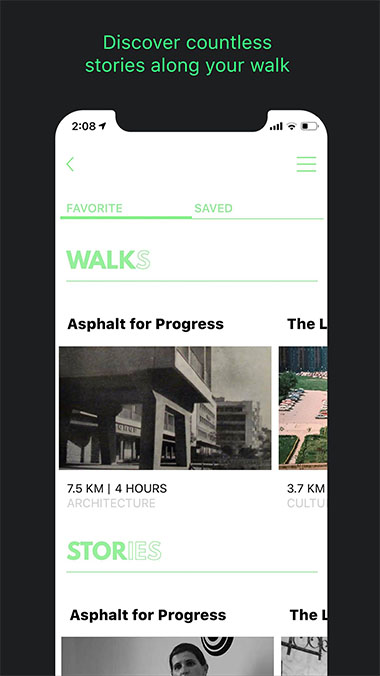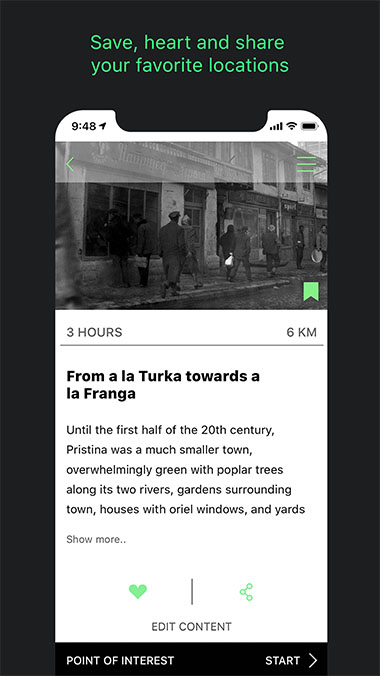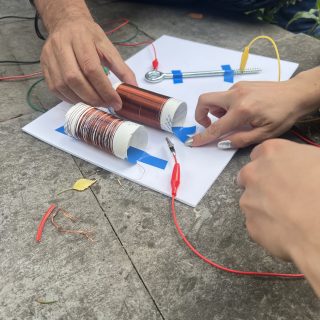As researchers in the guise of cartographers, we set out to map the stories of Pristina citizens that capture the history of the city in the past one hundred years. Having conducted twenty-nine oral history interviews, as well as having consulted over one hundred interviews from the Oral History Kosovo digital archive (oralhistorykosovo.org) and other public and privately owned photographic archives, we have secured countless personal stories that take note of key cultural and political events that have defined the contours of Pristina’s contemporary identity.
Pristina Walks is a multilingual interactive map whose architecture was designed to accommodate curated research as video, audio and text. The app consists of four thematized Walks: From a la Turca to a la Franga; Asphalt for Progress; The long ‘90s and Memoryscapes, which altogether contain eighty-four points of interest supported by one hundred and ten short videos which reveal the city from the perspective of its own citizens. Each Walk offers immersive discovery and learning experiences that nurture curiosity about cultural heritage, local history and architecture. Moreover, the Walks encourage walking as a way to create a sense of belonging and a culture of place.
We are aware that the story of our city is larger than these four Walks. Therefore, in line with our methodology, we will continue collecting life stories in the future. For that and other reasons, every section of this mobile app welcomes users’ contributions such as memoirs, stories and photographic archives. We find this collaboration with the wider public to be crucial to initiating new lines of inquiry and curating other Walks in the years to come.
Lastly, we would like to thank Pristina citizens who sat with us to share their life stories and gave us permission to publish their interviews and private photographic archives on the Pristina Walks mobile app.
Initiated in September 2018 by Oral History Initiative, Pristina Walks mobile app is a year-long research project on Pristina and it is part of the “Inter-community Dialogue through Inclusive Cultural Heritage Preservation” project funded by the European Union’s Instrument contributing to Stability and Peace (IcSP) and implemented by United Nation Development Programme (UNDP) in Kosovo.
